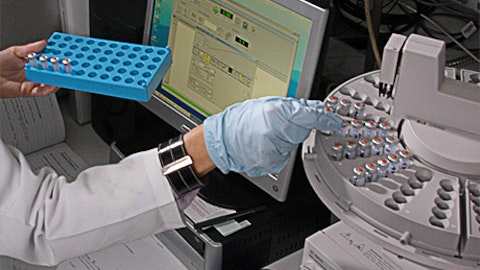Treatment with IV amphotericin B deoxycholate was discontinued due to renal toxicity and the patient was transitioned to MAT2203, which was well tolerated with no adverse effects. Treatment with MAT2203 also led to improvement of his kidney function to baseline. Earlier this month, another patient was enrolled in this program at Vanderbilt University Medical Center. This patient is suffering from a CNS-based Fusarium infection and required transition from IV amphotericin due to significant electrolyte abnormalities. Once electrolytes are stabilized, this patient should be able to be discharged from the hospital to receive treatment at home. We continue to evaluate requests for access where the compassionate use of MAT2203 may help patients without other treatment options.
Overall, we have a drug we believe has the potential to enact a paradigm shift in the treatment of invasive fungal infections. We are focused on submitting and gaining final agreement with the FDA on our Phase 3 study and the potential for an advantageous composite primary endpoint is a significant development for this drug. Once aligned, we look forward to progressing into our Phase 3 trial as quickly as possibly thereafter. I’d like to now turn the call over to Dr. Ferguson, our Chief Medical Officer. Terry?
Terry Ferguson: Thanks Terri, and good afternoon, everyone. Today, I’ll provide an update on initial results from our work in two important therapeutic areas, oncology and inflammation. Specifically, I’ll review our in vivo results with an LNC small molecule formulation in oncology, and share recent additional in vivo data highlighting our LNC platform capabilities for the oral delivery of small oligonucleotides. First, we’ve progressed from earlier in vitro studies that confirm the efficacy of an LNC formulation of docetaxel in inhibiting tumor cell growth in cell culture, to our recently announced positive in vivo results with oral LNC docetaxel in a syngeneic murine melanoma model. Docetaxel is a well-known chemotherapeutic agent widely used in the management of malignant diseases.
These in vivo results showed successful oral delivery docetaxel to tumors and a therapeutic response that was comparable to that of conventional IV docetaxel. In this study, mice who developed melanoma tumors in response to injected murine tumor cells, oral LNC-docetaxel given daily showed significant reductions in tumor volume compared with untreated controls with mean reductions at least two weeks — at two weeks of 63% with high-dose oral LNCs and 57% with lower dose oral LNCs. This compares favorably with 68% reductions with IV docetaxel. Similar significant reductions in tumor rate and tumor weight were noted with the oral LNCs. Importantly, no systemic toxicities were noted with nine days of daily oral treatment with LNC-docetaxel. Body weight was stable over the treatment duration and hematologic parameters were similar to untreated controls.
These encouraging results confirm our belief that phosphatidylserine expression on the outer surface of tumor cells presents a targeting opportunity for potential future oncology applications with our LNC platform. Next, I’d like to highlight recent data from our oral small oligonucleotide program. Building on previously shared work in human whole blood, that showed avid uptake of LNCs by macrophages, dendritic cells, neutrophils, and some T cell subtypes. We have been investigating a variety of LNC formulations of two small oligonucleotides designed to knock down the production of the inflammatory cytokines, IL-17A and TNF alpha. Similar to our work with docetaxel, initial in vitro studies verified that LNC formulations of these two oligonucleotides were able to consistently knock down IL-17A and TNF alpha in cell culture More recently, we have evaluated the in vivo biologic activity of orally administered LNC formulations of these oligonucleotides in a series of studies in a murine model using both high potency and lower potency lipopolysaccharide, or LPS stimulation.
The LPS model is an acute inflammatory model in which healthy animals are injected with LPS, resulting in a severe acute inflammatory response. This model is commonly used to evaluate the biologic effect of therapies targeting cytokines in the inflammatory cascade. Biologic activity is usually measured by reductions in the levels of the targeted cytokines. Initial LPS studies of varying doses of an IL-17A targeted LNC using lower potency stimulation documented substantial IL-17A knockdown with about 40% of animals showing complete knockdown. More recent studies with more potent LPS stimulation have shown lesser degrees of knockdown. Similar studies with an oral LNC formulation of an oligonucleotide blocking the formation of TNF alpha are ongoing.
